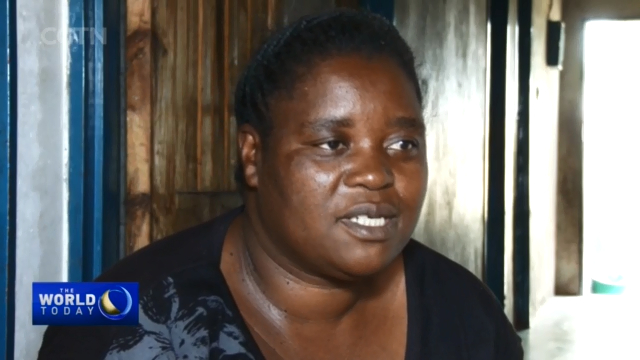
10:01, 17-Sep-2018
Zimbabwe Cholera Outbreak: Control measures hard to enforce
Updated
09:10, 20-Sep-2018
02:24

Cholera is a water-borne disease, and the Zimbabwean government has appealed to the public to take precautions. But as CGTN's Farai Mwakutuya reports, getting people to comply is proving difficult.
These are perilous times for Nosta Kwangwari. She lives near a sewer pipe which burst a few weeks ago and had been unattended to until city officials rushed to block it after the outbreak. Several people in her community have died or been infected by Cholera.
NOSTA KWANGWARI GLEN VIEW RESIDENT "We are living in fear that the disease might visit our home any day. We are also worried about the borehole water because the sewage pipes are leaking underground where that water comes from so there is a risk of contamination."
Water supply has been erratic here for years and when it does come out of the pipes it's filthy so residents here rely on borehole water.
But not everyone here is complying with the appeals to take extra care. Community health promoters say suspicion of the unknown and poverty are militating against efforts to try and protect some at risk.
NERIA NYAMARINGA COMMUNITY HEALTH PROMOTER "Some people are reluctant to use the water sterilizing tablets because they think there could be some hidden side effects. Others don't want to boil the water because it uses up too much electricity and they don't have money to buy firewood for boiling water."
Among controls imposed by authorities to contain the Cholera outbreak is a ban on food vending, which had been the main source of income and affordable foodstuffs for residents here.
NOSTA KWANGWARI GLEN VIEW RESIDENT "It will make things harder but we have no choice but to comply with the ban because protecting lives is more important."
FARAI MWAKUTUYA HARARE, ZIMBABWE "With Harare often suffering sporadic outbreaks of waterborne diseases residents have called for the implementation of long-term solutions. The city of Harare intends to speed up the completion of an upgrade to the main water treatment facility under 144 million loan from China's Exim bank, which was resumed after President Mnangagwa's state visit to China in April. FM, CGTN, HARARE."

SITEMAP
Copyright © 2018 CGTN. Beijing ICP prepared NO.16065310-3
Copyright © 2018 CGTN. Beijing ICP prepared NO.16065310-3